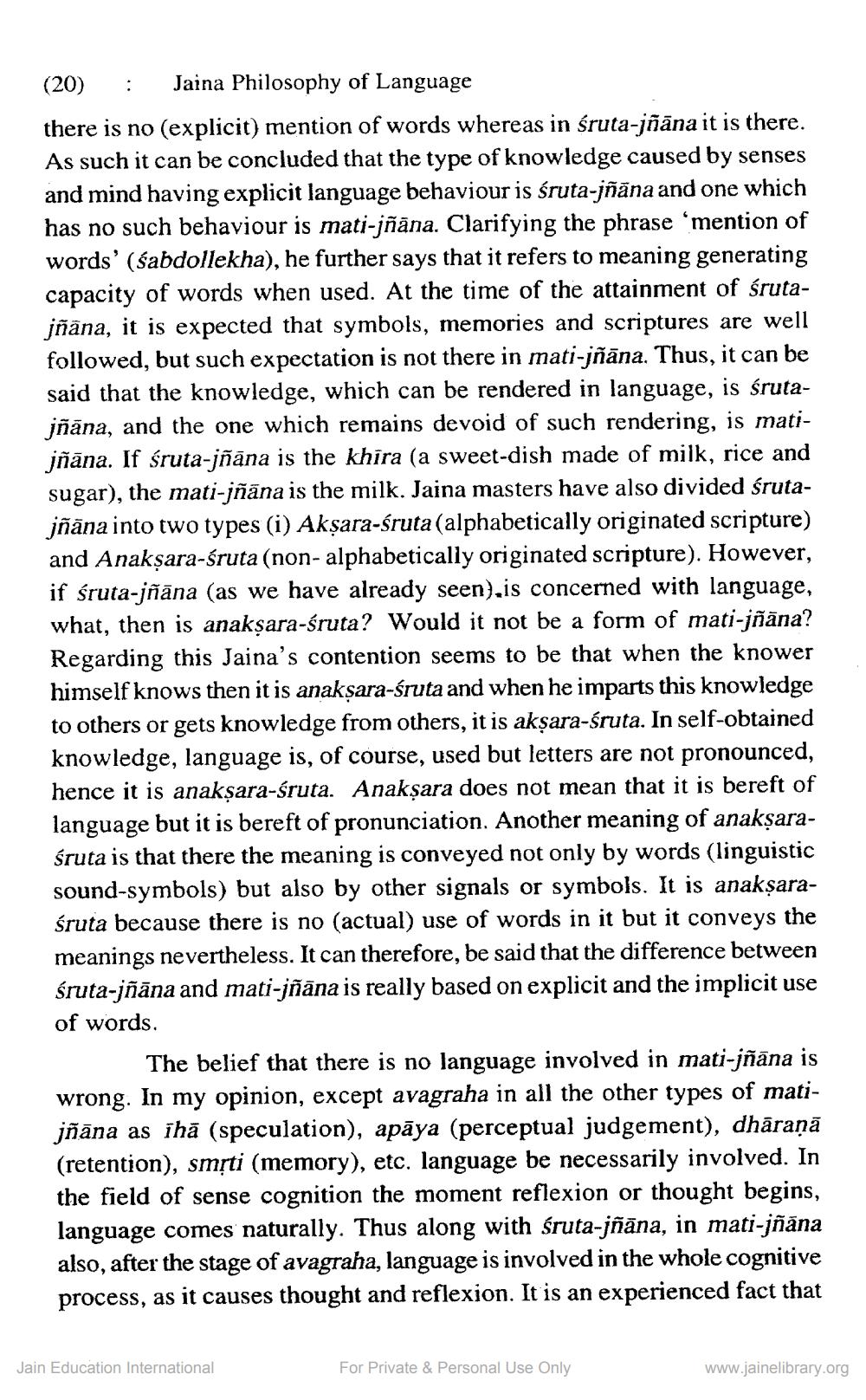________________
(20) : Jaina Philosophy of Language there is no (explicit) mention of words whereas in śruta-jñāna it is there. As such it can be concluded that the type of knowledge caused by senses and mind having explicit language behaviour is śruta-jñāna and one which has no such behaviour is mati-jñāna. Clarifying the phrase 'mention of words' (śabdollekha), he further says that it refers to meaning generating capacity of words when used. At the time of the attainment of śrutajñāna, it is expected that symbols, memories and scriptures are well followed, but such expectation is not there in mati-jñāna. Thus, it can be said that the knowledge, which can be rendered in language, is śrutajñāna, and the one which remains devoid of such rendering, is matijñāna. If śruta-jñāna is the khira (a sweet-dish made of milk, rice and sugar), the mati-jñāna is the milk. Jaina masters have also divided śrutajñāna into two types (i) Akşara-śruta (alphabetically originated scripture) and Anakşara-śruta (non-alphabetically originated scripture). However, if śruta-jñāna (as we have already seen),is concerned with language, what, then is anakşara-śruta? Would it not be a form of mati-jñāna? Regarding this Jaina's contention seems to be that when the knower himself knows then it is anaksara-śruta and when he imparts this knowledge to others or gets knowledge from others, it is akşara-śruta. In self-obtained knowledge, language is, of course, used but letters are not pronounced, hence it is anaksara-śruta. Anakṣara does not mean that it is bereft of language but it is bereft of pronunciation. Another meaning of anaksaraśruta is that there the meaning is conveyed not only by words (linguistic sound-symbols) but also by other signals or symbols. It is anaksaraśruta because there is no (actual) use of words in it but it conveys the meanings nevertheless. It can therefore, be said that the difference between śruta-jñāna and mati-jñāna is really based on explicit and the implicit use of words.
The belief that there is no language involved in mati-jñāna is wrong. In my opinion, except avagraha in all the other types of matijñāna as ihā (speculation), apāya (perceptual judgement), dhāraņā (retention), smộti (memory), etc. language be necessarily involved. In the field of sense cognition the moment reflexion or thought begins, language comes naturally. Thus along with śruta-jñāna, in mati-jñāna also, after the stage of avagraha, language is involved in the whole cognitive process, as it causes thought and reflexion. It is an experienced fact that
Jain Education International
For Private & Personal Use Only
www.jainelibrary.org




